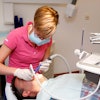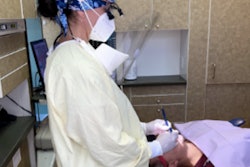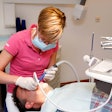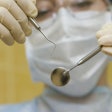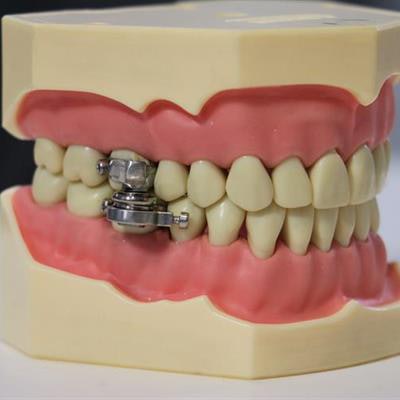
An oral weight-loss dental device that locks the jaw to force users onto a liquid-only diet is drawing fire from an advocacy group that said it promotes a "starvation diet" and is adding to the "shame and stigma" already surrounding weight loss.
In a July 13 position statement, a committee of the Academy for Eating Disorders (AED) denounced use of the Dental Slim Diet Control, a mouth lock that in a recently published research study was found to help users achieve 14 lb of weight loss over two weeks.
The academy's Medical Care Standards Committee, which is a multidisciplinary group of healthcare professionals, researchers, and advocates, states that it has grave concerns about the device. The committee said the mouth lock promotes a "starvation diet" and the study of the device failed to assess participants for medical complications or include psychological evaluation support, according to the statement.
"Weight is not something to be cured," the committee members wrote in the statement. "The potential for abuse, misuse, and psychological damage from this dental device is of grave ethical concern."
Researchers from the U.K. and New Zealand developed the device as an alternative to other weight-loss options. Despite being designed for people who want to jumpstart their weight loss journey or to lose a few pounds quickly before they must undergo general anesthesia, the AED isn't first to speak out against it. Many have used social media to mock and criticize the device.
Dental Slim Diet Control, which was not created for long-term wear, consists of closed-field magnets with custom-manufactured locking bolts and orthodontic bands that are cemented to a patient's first molars by a dentist. The device limits a person's mouth opening to about 2 mm, restricting him or her to a liquid diet.
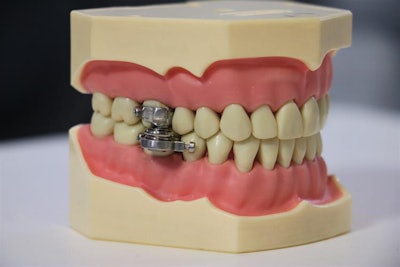 The DentalSlim Diet Control weight-loss device. Image courtesy of the University of Otago.
The DentalSlim Diet Control weight-loss device. Image courtesy of the University of Otago.The handful of women who participated in the study were prescribed 800 ml (1,200 calories) per day of a commercially available liquid diet for two weeks. After 14 days, they lost about 5% of their body weight. The participants commented that the rapid weight loss prompted them to start a healthy diet and were motivated to continue losing weight, according to study results that were published in June in the British Dental Journal.
Too much weight loss, too quick
Though carrying around too much weight can lead to health problems, rapid weight loss isn't healthy either. Losing weight too quickly can lead to life-threatening medical complications of severe malnutrition in every organ system, including but not limited to bradycardia, hypotension, macronutrient and micronutrient deficiencies, liver disease, and refeeding syndrome, according to the position statement.
"The authors failed to assess for any medical complications including laboratory and vital sign abnormalities," the committee members wrote.
Additionally, the lack of psychological evaluation support worries the AED's committee. Wearing the mouth lock may create or perpetuate restrictive or compensatory eating disorder behaviors and other psychological problems, according to the statement.
"Studies have shown that weight loss attempts may lead to the development of eating disorders, depression, body dissatisfaction, and maladaptive weight control behaviors," according to the statement.
Finally, the committee was troubled by the "shame and stigma" implied in the study.
"We call upon our community to question the use of not only this device, but of all weight loss methods that perpetuate weight stigma and may lead to patient harm," the committee members wrote.


